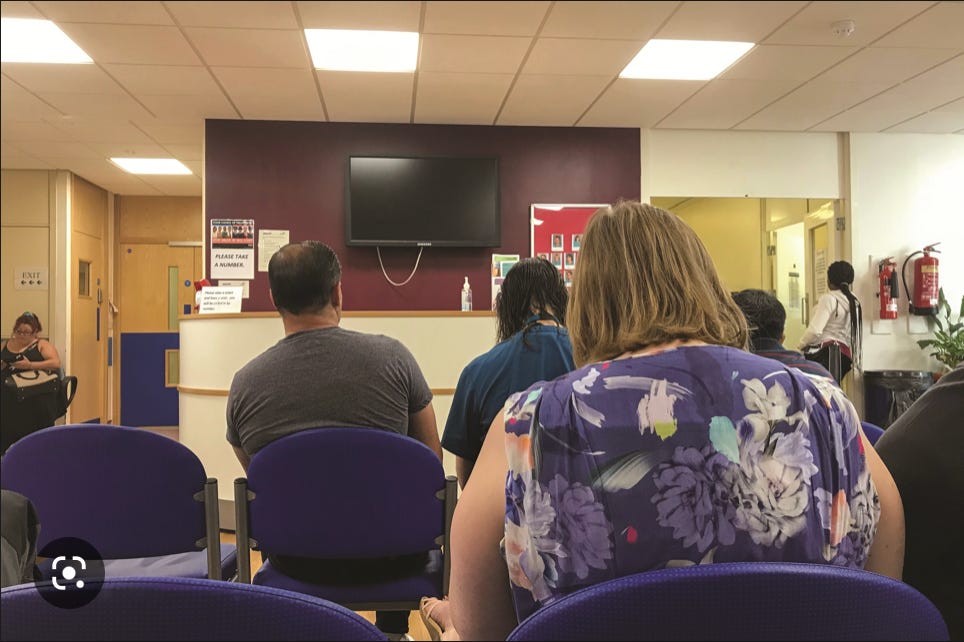Peer pressure, or more specifically, patient pressure is a real thing.
Whether you’re walking through a waiting room consisting of delayed, unwell and angry patients or in a consulting room where a patient is making compelling arguments as to why they require a particular blood test - we certainly do feel pressurised to make certain decisions. I mean.. I love Google but it can create some problems for us!
I recently assessed a young, well dressed 35-year-old chap with symptoms consistent with flu. After doing some observations, listening to his chest and even doing an x-ray I informed him of his diagnosis. He asked if I’d be prescribing any antibiotics to which I replied in the negative. He then suggested that I should in-fact prescribe antibiotics as apparently 17% of viral flu can cause secondary bacterial complications (not sure where I he got this from?). While I was impressed, I was still resolute that this was pure influenza and tried to explain my rationale as to why antibiotics were not needed.
Turns out he got his information from ChatGPT which has certainly become the next technological craze. I’ve played around with ChatGPT and here are some of my thoughts.
Chat GPT
Elon Musk is pretty smart. Apart from his current tenure as Twitter CEO, most of what he has done is pretty forward thinking. Chat GPT is another one of these projects and in summary, here is what it does.
It is an extension of Open AI, a platform which seeks to create real life solutions from artificial intelligence.
Chat GPT is loaded with live information across a wide area of disciplines. It is intended to be responsive, intuitive and provides responses in an advisory style.
It’s different from other software such as Siri, Google Voice and Wolfram. It can actually process your question as a problem that needs solving and give you practical guidance concerning it.
It’s intended to be “neutral” so it turns away from controversial topics and themes such as contemporary politics and racism.
So how is this linked to healthcare?
This patient I met typed his symptoms on ChatGPT which suggested the need for antibiotics. He had some yellow sputum so I guess that’s where the suggestion for antibiotics came from. It’s very easy to feel pressured by patients especially when they are armed with medical information. Google, Patient UK and other websites have done wonders as they have allowed people to be more informed and practical about their health but they are also tools that can be used against us.
I think ChatGPT will probably exacerbate these effects - good and bad. I’m sure it can give patients with diabetes a brilliant diet plan, a smoker with COPD a strategy to quit smoking or create an exercise regimen for somebody who has had cardiac surgery. However, there is a possibility that it suggests a treatment plan for conditions which be used as a basis to make certain demands. I think we should be prepared.
It’s simple really. As healthcare practitioners, we are trained to see a wide spectrum of diseases and treat them with an appreciation and understanding of the basic pathophysiology. We should be comprehensive with our explanations and not afraid to invite questions. It doesn’t mean we know the answer to everything and if there is something you don’t know, just tell the patient you’ll get back to them.
I’ve seen so many colleagues administer treatments, make referrals and order investigations simply due to pressure from patients. This is a dangerous culture and whilst it is difficult to resist, reminding ourselves that we work in healthcare for the benefit of patients first and foremost will help us become confident and resolute in our diagnosis.
In the meantime, I’d recommend trying Chat GPT. It’s pretty cool and some of the answers to problems even outside of healthcare are pretty good.
Life as a Doctor in Nigeria, Ukraine and the UK
Check out our latest podcast where we interview Dr Celestine who shares his experience traversing continents studying and practicing medicine. This was a really insightful interview where he shares his insights into the differences between the different healthcare systems and explains why the NHS sets a high standard for healthcare.
Please like, share and subscribe!
You can also listen here:
Check us out on our various pages
Website: www.paretoeducation.co.uk
Instagram: www.instagram.com/pareto_ed
Twitter: www.twitter.com/pareto_ed
Youtube: https://bit.ly/3DPm23c
Email: paretopaeducation@gmail.com





